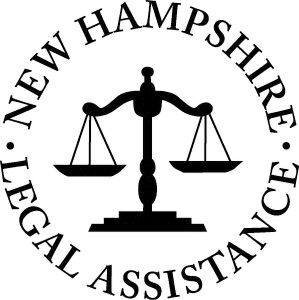Fair Housing Project Offers a Place for Answers on Fair Housing
People who face housing discrimination often don’t know where to turn for help. They may have questions about whether their circumstances qualify as discrimination, or they may just wonder what options they have to remedy their problem. The NHLA Fair Housing Project was formed more than 20 years ago to serve as a resource for people’s fair housing questions and fight for victims of discrimination to get the remedies they deserve.
People who face housing discrimination often don’t know where to turn for help. They may have questions about whether their circumstances qualify as discrimination, or they may just wonder what options they have to remedy their problem. The NHLA Fair Housing Project was formed more than 20 years ago to serve as a resource for people’s fair housing questions and fight for victims of discrimination to get the remedies they deserve.
History of fair housing laws
Fifty years ago, the federal government passed the Fair Housing Act to battle racial segregation in housing and to promote integration and equal housing opportunities. In the years following, New Hampshire passed its own laws expanding upon these protections. Today, it’s illegal in New Hampshire for landlords to discriminate based on someone’s race, color, national origin, religion, sex, familial status, disability, age, sexual orientation, marital status, or gender identity. Fair housing protections for these classes also include when buying a home and securing a mortgage.
Survey reveals problems in access to fair housing
Unfortunately, housing discrimination still persists today. A 2010 survey of people on the New Hampshire Housing Finance Authority’s waiting list for its Housing Choice Voucher Program for Section 8 housing found that a number of people reported discrimination in securing rentals. Here are some other findings:
● People who had suffered domestic violence were much more likely to report having been denied rental housing, denied a mortgage, or evicted for both nonpayment of rent and for other reasons.
● People with a disability were much more likely to report having been denied rental housing, denied a mortgage, evicted for both nonpayment of rent and for other reasons.
● Households with children were more likely than households without children to have been denied rental housing, denied a mortgage, and evicted for nonpayment of rent.
● Race and ethnicity played a role in perceived discrimination, with most members of minority groups perceiving more discrimination than white people.
How the NHLA Fair Housing Project helps
Through grant funding from the U.S. Department of Housing and Urban Development, the Fair Housing Project was created to evaluate complaints from New Hampshire residents who suspect they’ve been the victim of housing discrimination. The Fair Housing Project also provides representation when seeking remedies, whether it be making a reasonable modification within the rental property for a person with disabilities or securing a desired rental previously refused because the tenants have young children.
The Fair Housing Project understands that language can be a barrier, not just in seeking a place to live, but in finding assistance if you’ve been the victim of discrimination. To accommodate those who prefer another language, the Fair Housing Project will secure a qualified interpreter when meeting with you.
The Fair Housing Project also operates a Testing Program to identify unlawful housing discrimination as well as evaluate reported discrimination claims. Testing may be appropriate where someone suspects discrimination has occurred or conducted as a precaution in complexes where refusal to rent based on discriminatory practices has not been reported but may be occurring.
Disclaimer: The work of NHLA’s Fair Housing Project is supported by funding under grants with the U.S. Department of Housing and Urban Development. NHLA is solely responsible for the accuracy of the statements and interpretations contained herein. Such interpretations do not necessarily reflect the views of the Federal Government.

